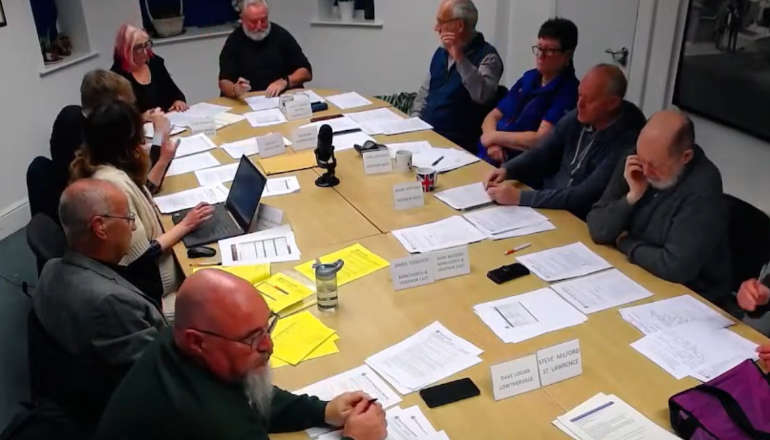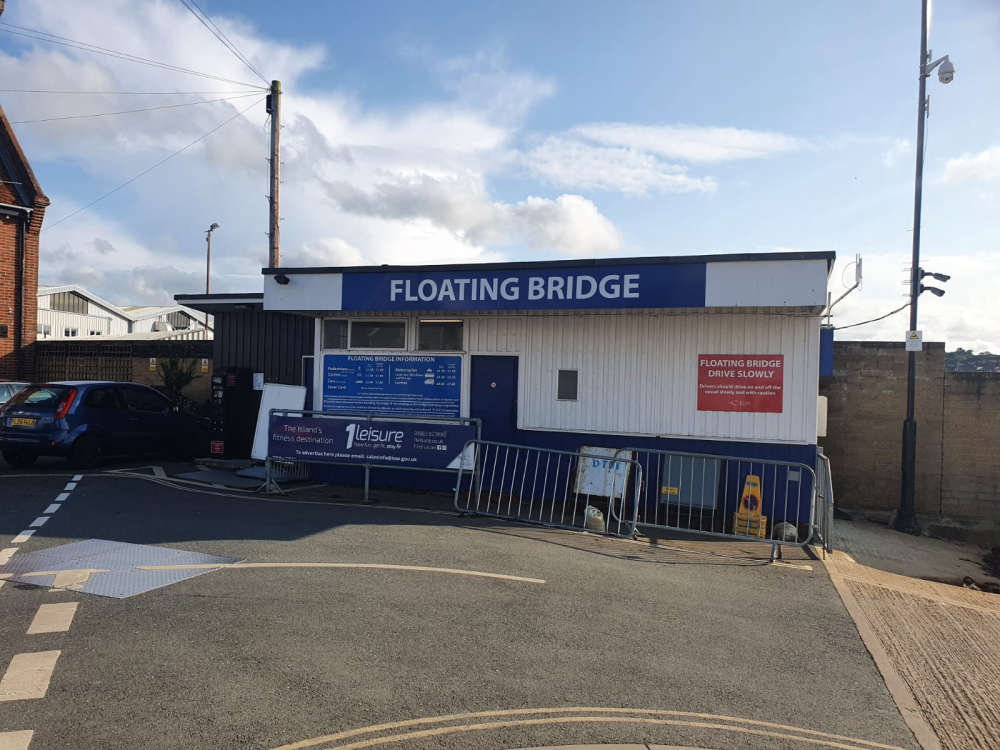Prisoners are being sent back to jail by the probation service because it's the "easiest thing to do", rather than solely for public protection, the chief inspector of probation has told Sky News.
Martin Jones cited caseload "pressure" in the service meaning officers are recalling people to jail to get them out of their "worry zone", even if it has "relatively little impact on the protection of the public", causing "overcrowded prisons" for "limited benefit.
"I think it's a symptom of a system under huge pressure," said Mr Jones.
"I'm not sure that the checks and balances are in place to ensure that it's really about significant risk to the public. There is of course a difference between somebody, for example, committing a very serious sexual or violent offence and perhaps somebody who is released from custody on licence, they don't have anywhere to live and they shoplift. They might face further charges. Is it really necessary for the protection of the public that person be recalled to custody?."
The recall population in England and Wales - the number of prisoners sent back to jail after release - has more than doubled in the last decade. It now accounts for 15% of the total number of people behind bars.
Data published by the Ministry of Justice covering July-September 2024 showed there were 9,975 recalls, up 42% on the same period the previous year, and the highest quarterly recall statistics on record. It means that for every 100 people being released between July and September, 67 people were recalled.
It comes after the government introduced a new early release scheme in September, which saw thousands of offenders freed after serving 40% of their sentence, rather than 50%.
In the three months to September, nearly a quarter (24%) of recall cases involved a charge of further offending, with almost three-quarters (73%) of people recalled for "non-compliance" with license conditions.
That can include missing or turning up late to probation appointments, missing curfews, or poor behaviour. Homelessness, meaning offenders aren't reporting to stable accommodation, is another significant recall factor.
In the past three years, the annual number of recalls for people who have faced no further charges while on license almost doubled, from 13,192 to 25,775 per year. Meanwhile the number recalled who have been charged with a new crime is almost exactly the same as it was then.
Less than a quarter of those recalled to prison in the year to September were charged with a new crime - the first time on record that figure has been that low.
There are a number of factors as to why the recall population has grown so much. These include longer sentences meaning lengthier license supervision periods on release, higher caseloads, and structural changes to the service meaning probation monitoring is required for all offenders.
Before 2014, it wasn't required for those sentenced to less than a year in jail.
Early release schemes under the previous government and new measures introduced by Labour in September have contributed.
Changes to the recall process in April also mean that less serious offenders serving sentences of under 12 months will go back to prison for a fixed short period. It’s therefore possible for an offender who might have previously been back in prison for months, now to be released and recalled multiple times.
The number of recalls to releases has been growing. In 2013 prisons were recalling one prisoner for every five people released. That ratio is now 3:5.
Sky News spent an afternoon with ex-offenders in Burnley as they turned up to a charity service called Church on the Street, which offers support to help former criminals turn their lives around.
All of them had experiences and stories of recall, some more than once.
One man said he'd been "recalled for missing three appointments, for being drunk and under the influence".
"Every time I've been recalled, it's always been for 18 months, two years. It goes on for that long," he said.
He accepts "responsibility" for breaking the rules but doesn't feel it "warrants" lengthy terms back in jail for "no crime committed".
Read more:
Prisoners moved to less secure jails to tackle overcrowding
Under-strain prison system to shut down thousands of unfit cells
Prisoners in hospital after taking 'drone-delivered drugs'
Long sentences, sometimes for serious crimes, mean that when released at the halfway point prisoners are monitored by the probation service with lengthy license periods. If recalled, whether that be for a breach of a license condition or a further crime - they can end up serving the remainder of that sentence in prison.
Another ex-offender we met told us of a man who was released homeless, with a GPS tracking tag. He couldn't charge his tag as had no electricity, without a home, and hence couldn't be monitored by the probation service, and so was recalled to jail.
Bishop Mick Fleming runs Church On The Street and calls the situation with recall "ridiculous", saying that the community has noticed a "massive" increase, suggesting that both the prison and probation system is "failing".
What's being noticed outside jail in the community, is also being felt inside a pressured and crowded prison system.
When Sky News visited HMP Elmley in Kent in October, almost everyone we spoke to referenced issues with recall.
"It's like a revolving door", one serving offender told us. Another said, "cut the recalls down, and the prisons will be empty".
"We release a lot of people, they're homeless, they come back within three days," said a prison officer.
In a statement a Ministry of Justice spokesperson told Sky News that the number of recalled offenders in prison has "doubled" which they say has "contributed to the capacity crisis the new government inherited, with prisons days away from overflowing".
They said it can take "months before a Parole Board decision on whether a recalled prisoner should be re-released and so we are looking at ways to reform the recall and re-release process, while retaining important safeguards to keep the public safe".

(c) Sky News 2025: Prisoners being sent back to jail because it's the 'easiest thing to do', chief inspec


 OpenAI co-founder tells Sky News his platform is 'not for sale'
OpenAI co-founder tells Sky News his platform is 'not for sale'
 Benjamin Netanyahu says Gaza ceasefire will end if Hamas does not free hostages by Saturday
Benjamin Netanyahu says Gaza ceasefire will end if Hamas does not free hostages by Saturday
 Angela Rayner insists 1.5m housing target can be met as extra £350m pledged for affordable homes
Angela Rayner insists 1.5m housing target can be met as extra £350m pledged for affordable homes
 Elon Musk denies 'hostile takeover' of US government - as son sits on his shoulders in Oval Office
Elon Musk denies 'hostile takeover' of US government - as son sits on his shoulders in Oval Office
 Palestinian family allowed to remain in UK after applying through Ukrainian refugee scheme
Palestinian family allowed to remain in UK after applying through Ukrainian refugee scheme



 "Very Tough Decisions" Amid "Chronic" Government Underfunding - Greens On Budget
"Very Tough Decisions" Amid "Chronic" Government Underfunding - Greens On Budget
 Town Council Votes To Keep "Vital" Beach Safety Project With Precept Increase
Town Council Votes To Keep "Vital" Beach Safety Project With Precept Increase
 Two Teenage Boys Arrested Following Binstead Robbery
Two Teenage Boys Arrested Following Binstead Robbery
 Council Chair Welcomes "Essential" £35,000 Floating Bridge Budget Spend
Council Chair Welcomes "Essential" £35,000 Floating Bridge Budget Spend